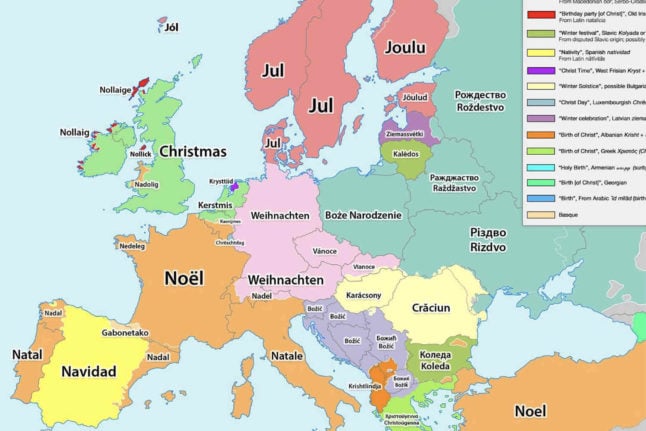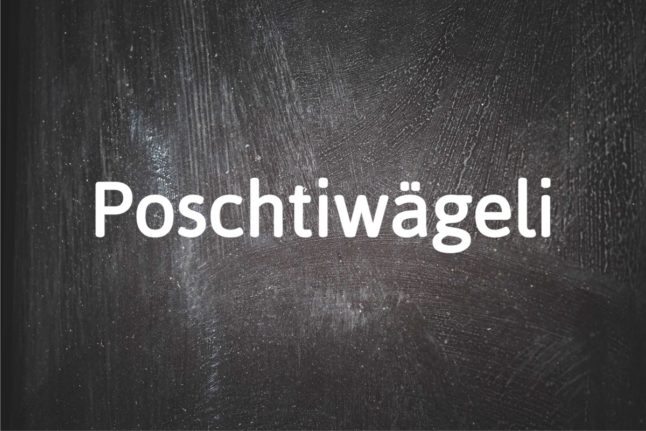Switzerland’s four official languages – Swiss German, French, Italian and Romansh – each have their own name for Christmas.
Given the Swiss proficiency in English, if you’re ever stuck this festive season – a simply ‘Merry Christmas’ is likely to suffice. It is a happy time of year after all, so it’s probably not the time for correcting someone (although don’t be surprised if it happens).
But in the interests of keeping things correct, here’s the names for Christmas in different parts of Switzerland – and why.
Swiss German: Weihnachten/Fröhliche Weihnachten
Just under two out of every three (63 percent) Swiss speak Swiss German as their first language, making it the most popular and widely spoken language in the country.
In Swiss German, just like in German, Christmas is Weihnachten – which translates to ‘holy night’ or ‘in the holy night’.
Weihen is a verb which means to dedicate or consecrate, while Nachten means night/nights.
The word comes from the original middle high German word wihennahten.
Merry Christmas in German-speaking Switzerland is Fröhliche Weihnachten or simply Frohe Weihnachten.
French: Noël/joyeux Noël
Around 23 percent of Swiss speak French as their first language. Christmas is known as Noël in Romandy, which translates to the ‘birthday of the Lord’ – referring of course to Jesus Christ.
Noël is thought to come from the Latin dies natalis, which means ‘day of birth’, although some suggest it derives from the Old French word nael.
Merry Christmas in French is joyeux Noël.
Italian: Natale/buon Natale
Around 8 percent of Swiss speak Italian as a first language, where the word for Christmas is Natale.
As with French, it translates to the ‘birthday of the Lord’ – although here the connection with the Latin dies natalis is especially clear.
In Ticino and want to wish someone a merry Christmas? Then buon Natale is all you will need!
Romansh: Nadel/Bellas festas da Nadel
Only spoken by around 0.5 percent of the population – or roughly 45,000 people as a first language – Romansh is another language with Latin influence and is the fourth official language of Switzerland.
Christmas in Romansh is Nadel, which again means birthday of the Lord – as with the other Latin-influenced Swiss languages.
While Nadel may appear similar – in particular to the Italian ‘Natale’ – it is even closer to Catalonian and Galician words for Christmas, where Christmas is Nadal. In Portuguese, Christmas is Natal.
Merry Christmas in Romansh is a little bit of a mouthful – Bellas festas da Nadel – however it’ll be much appreciated if you say it to a Romansh speaker.
Swiss Christmas Traditions
Bizarre Swiss Christmas traditions #1: Santa’s strange Swiss squad
Bizarre Swiss Christmas traditions #2: The Harley riding Santas of Basel
Bizarre Swiss Christmas traditions #3: Get drunk on cake, but don’t “make it vomit”
Bizarre Swiss Christmas Traditions #4: Lake Lucerne’s Santa Hunt
Bizarre Swiss Christmas Traditions #5: Edible gingerbread trees
Bizarre Swiss Christmas traditions: #6 Geneva’s ‘Coupe de Noël’




 Please whitelist us to continue reading.
Please whitelist us to continue reading.
Member comments